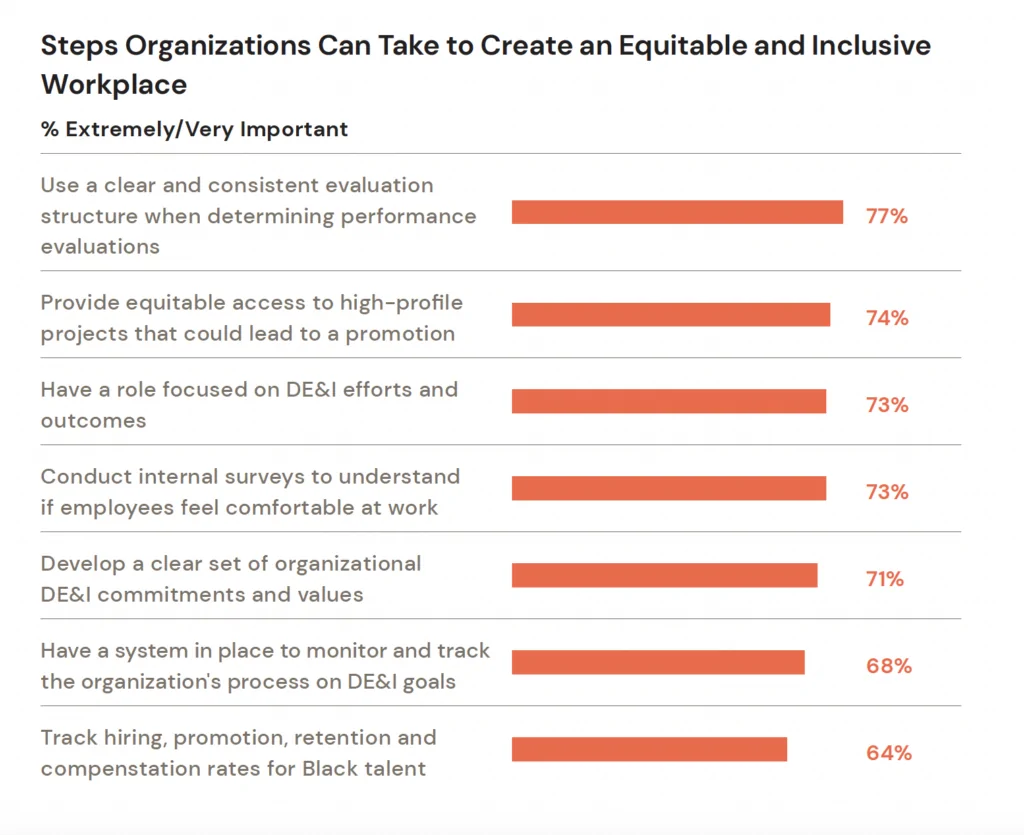Skills-First Pathways: Insights on the Economy, Jobs and Workplace Culture from Black Talent Without Degrees

In a rapidly changing job market, innovative approaches that prioritize skills over formal education are quickly gaining traction. Our latest research report, "Skills First Pathways: Insights on the Economy, Jobs and Workplace Culture from Black Talent Without Degrees," sheds light on the unique barriers and opportunities faced by Black workers without four-year degrees and how skills-first practices can uplift these workers.
The Current Landscape
Despite recent job growth, significant racial disparities persist in employment. Black workers, particularly those without a four-year degree, face formidable challenges, including a competitive job market, economic hardships, and workplace culture issues. Black unemployment rates remain disproportionately high compared to their white counterparts, especially in major urban centers.

The current workforce landscape is also marked by significant shifts, including the migration of college-educated workers from major economic hubs, an aging population, declining birth rates, and a decreasing number of young people pursuing higher education due to concerns about debt and the value of a four-year degree. Additionally, post-pandemic workforce participation has not rebounded to previous levels, contributing to a labor shortage.
The Promise of Skills-First Hiring
The skills-first movement, which emphasizes skills and competencies over formal education, has the potential to revolutionize talent acquisition and retention. For employers dedicated to inclusive hiring strategies and promoting workplace diversity, addressing the needs of Black talent is crucial. This demographic represents the largest segment of the non-degreed workforce, with 76% of Black individuals not holding a four-year degree. Tapping into this underutilized talent pool can significantly enhance organizational success by fostering greater workforce equity and bringing diverse perspectives that drive innovation and growth.
Benefits of Skills-First Practices
Implementing skills-first practices not only broadens the talent pool but also aligns with broader economic and demographic trends. These practices offer substantial benefits for businesses, including enhanced innovation, increased productivity, and a more inclusive workforce. By focusing on skills, organizations can create opportunities for individuals from marginalized communities, thereby fostering a more equitable and thriving workforce.
Creating Supportive Workplace Cultures
To attract and retain Black talent without degrees, employers must understand their experiences and address their unique challenges. This involves adjusting workplace cultures to be more inclusive and supportive. Recognizing and proactively addressing the barriers faced by Black workers can help create environments where all employees have the opportunity to succeed.
Key Findings from the Report

Our report underscores several critical points:
-
- Inflation Concerns: Black talent without four-year degrees are more worried about inflation than the general population. Only 23% rate their economic situation as good or excellent, compared to 46% of all Americans.
- Unemployment Rates: Four out of ten surveyed are unemployed, double the rate of their peers with degrees. Only 34% are employed full-time, compared to 63% of prime-age Americans.
- Wage Challenges: Three out of four earn under $50,000 and struggle to find jobs that pay a family-sustaining wage, which they define as approximately $62,000 annually.
- Job Satisfaction: Low sense of belonging and feeling undervalued contribute to job dissatisfaction. Only 27% feel a strong sense of trust in their organizations' appreciation for Black employees.
- Perceptions of Diversity, Equity and Inclusion: While 64% of Black talent surveyed believe their organizations are diverse, fewer believe they are equitable (58%) and inclusive (53%). Many suggest that better investment in inclusivity programs could enhance their workplace motivation and productivity. sense of trust in their organizations' appreciation for Black employees.
The Path Forward
To attract and retain Black talent without four-year degrees, employers need to fully understand their experiences and what they require for success so they can adjust workplace culture accordingly. Proactively recognizing and addressing the unique challenges faced by these workers can help organizations create supportive environments where all employees can thrive.

Conclusion
Our report underscores the importance of embracing a skills-first approach to unlock the potential of Black talent without degrees. By shifting the focus from formal education to skills and competencies, employers can access a vast, untapped talent pool and contribute to a more equitable and dynamic economy.
Download our full report to explore comprehensive insights and actionable recommendations for implementing skills-first hiring practices in your organization. Learn more about how to work with OneTen at Skills First.
Download PDF